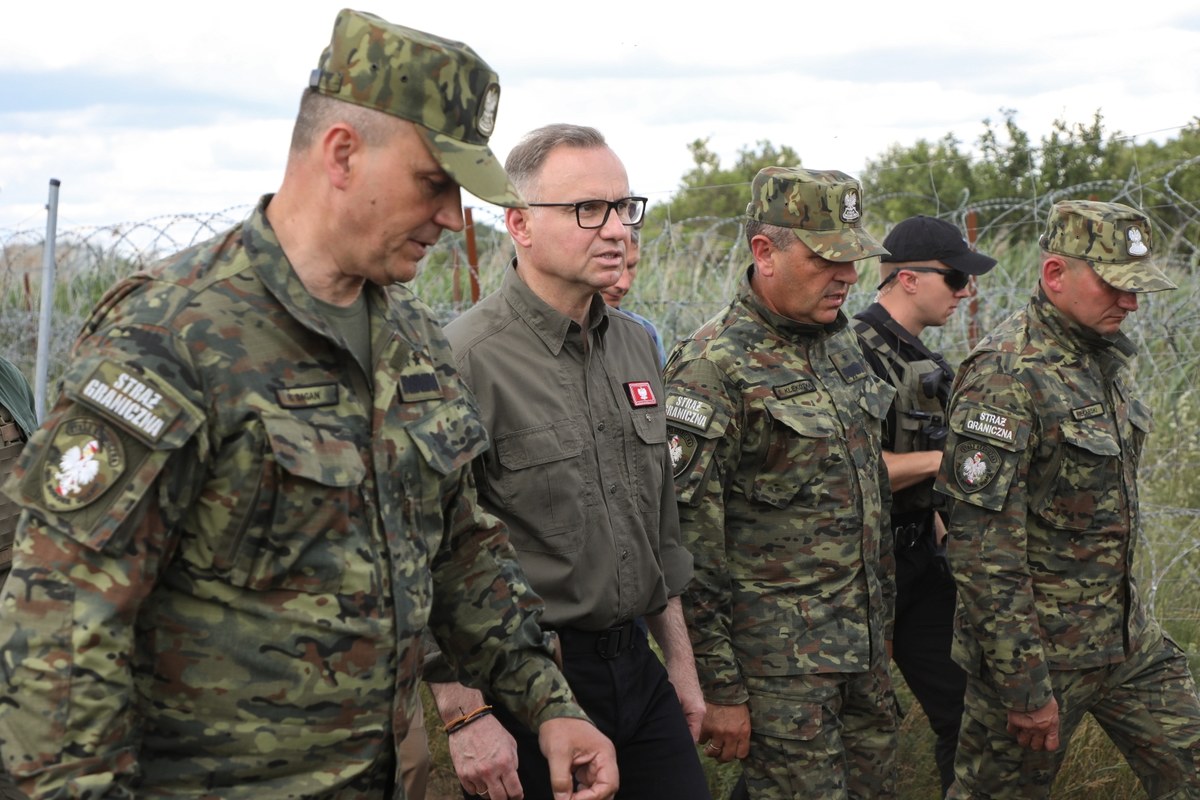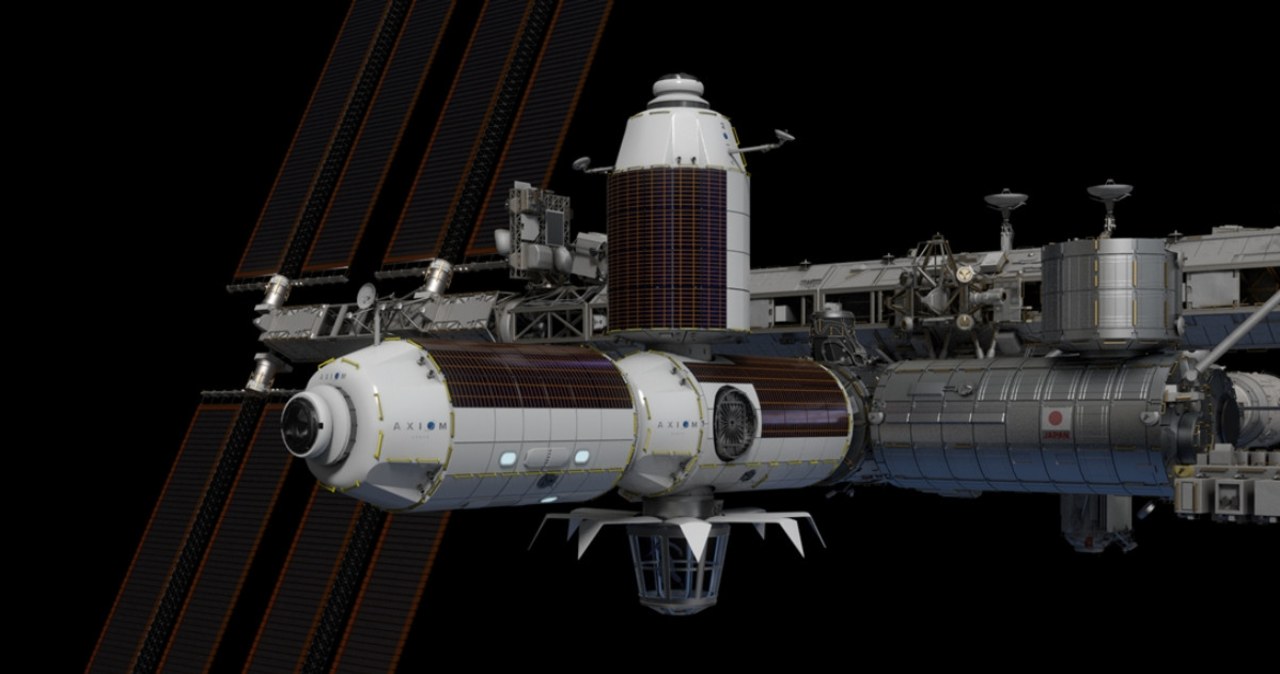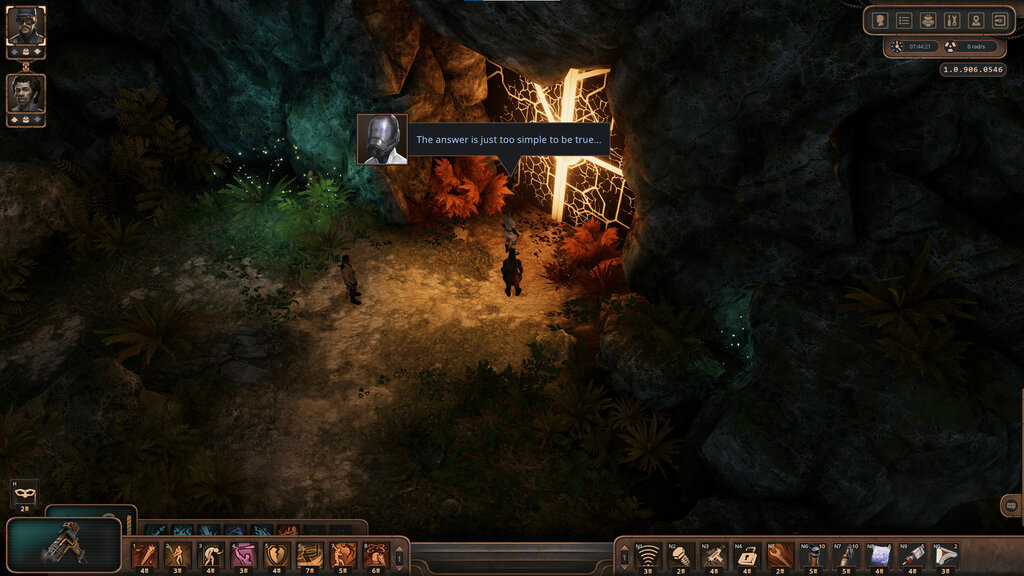Israel's attack on Iran – the end of the substitute war, the beginning of the direct
On the night of 12 to 13 June, Israel launched an armed attack on Iran, which, according to authoritative declarations, is intended to destruct the atomic programme there. respective 100 targets were attacked in the following days, including atomic installations, military installations and muslim Revolutionary defender Corps (KSRI). Many people from safety structures were killed. The number of deaths on the Iranian side varies depending on the origin between 220 and 400.
In response, Iran shoots Israel with rockets and drones, where, despite comparatively effective defense, more than 20 civilians have been killed. The US supported Israel with intelligence and logistics, avoiding direct engagement in offensive activities. Tehran announced his willingness to talk to Washington about the political regulation of his atomic program, but he placed the condition for Israel to halt operations.
The attack follows the Hamas bombing of October 7, 2023, Israel's policy to destruct threats from close allies of Iran (including Lebanon, Syria, Yemen). At the same time, it is much more a sign of strength and conviction of the emergence of a unique "candidacy window" allowing political elimination of the main regional opponent than is due to direct threat from Tehran. Israel's aim is not only to destruct Iran's atomic programme, but besides to change the regime, at least to destabilise it deeply. However, since the Israelis do not have the capacity to carry out these purposes themselves, they search to engage in offensive actions of the United States as well.
The course of attack...
The targets of the strikes are air defence systems, military bases, airports, atomic facilities (Natanz, Isfahan, Fordow, Arak), production facilities, ballistic rocket launchers and retention facilities, critical infrastructure (refineries, natural gas extraction and processing installations, Fuel retention facilities), the premises of the safety authorities and civilian buildings where the high-ranking service representatives resided.
Israel killed among others the highest commanders of the armed forces and the KSRI and respective twelve another high-ranking officers, as well as Ali Shamchani, an influential advisor to Iran's leader overseeing negotiations with the US. In addition, many scientists active in the national atomic programme have lost their lives. The attacks are primarily carried out from the air (aircraft and rocket shelling), but besides utilizing a local agentry and operating on the site of Israeli peculiar services.
Iran's retaliatory actions include especially waves of rocket attacks on targets in Israel. Their effectiveness is limited, among others, by the efficiency of the air defence strategy of this country (supported by the US, among others, by Patriot and THAAD systems) and the capture of missiles and drones over the territory of Jordan. Iran, contrary to multiple threats, did not attack US military bases in the region, nor did it lead to blocking trade routes (including the Strait of Ormuz) due to the fact that it did not want to internationalize the conflict.
As a consequence of the attacks, Israel gained freedom to operate in Iran's airspace over a large part of it (including the capital), eliminated any safety establishment leaders and importantly weakened Iran's offensive potential. However, the scale of harm to atomic installations is hard to measure due to their mostly underground location.
...and his motives.
On the basis of the offensive against Iran, Prime Minister Binjamin Netanyahu stressed that it was a "direct" and "existential" threat to Israel's security. The main reasons are the real likelihood of militarization of Iran's atomic program and improvement of its ballistic rocket program. As regards the first threat, the head of government cited the assessment of his country's intelligence according to which Tehran would be ready to carry out the first atomic tests within 6–13 months.
The announcements of the anticipation of taking armed action against Iran's atomic programme have emerged from Israeli leaders since the mid-first decade of the 21st century. Netanjahu himself devoted much of his political activities to this issue, as demonstrated by, for example, his speech at the UN in September 2012, in which he warned that Iran could get atomic weapons within respective months.
However, the fact that the attack took place now is most likely not due to the actual advancement of the program. According to information from the U.S. intelligence services, presented in March by U.S. National Intelligence manager Tulsi Gabbard, Iran's military atomic task in practice has been suspended since 2003 (although Tehran has late increased the supply of enriched uranium clearly above the level of civilian programme request – see Annex).
Thus, Israel appears to be taking action, not due to a direct threat, but due to the position of force, at the same time discounting the favourable regional and global situation.
Since the Hamas attack of 7 October 2023. Israel:
- neutralized most of the military possible of this organization in the Gaza Strip (while committing mass-scale war crimes);
- In the autumn of 2024, he severely weakened Lebanese Hezbollah, including killing his leader Hasan Nasr Allah;
- largely (although not entirely) destroyed the offensive possible of the Yemeni Huti Movement;
- by hitting Hezbollah, has contributed to the collapse of Bashar al-Assad's government in Syria (December 2024), thereby disposing of Iran's key ally in the region;
- conducted an air attack on Iran, destroying part of its anti-aircraft defence battery (October 2024).
Consequently, Iran's offensive potential, in peculiar as regards the support it could receive from regional allied organisations specified as Hezbollah or Huti, has been importantly weakened.
The decision on the Israeli attack accelerated the US-Iran negotiations in Oman since April to address the Iranian atomic programme by diplomatic road. Israel expressed discontent with these talks from the beginning, as it considered their possible success a threat to their own interests. The authorities there do not believe in the effectiveness of diplomatic mechanisms (vide Their fierce opposition to the 2015 JCPOA agreement and lobbying for its 2018 break by the US).
Israel's current offensive against Iran aims to: reduce its possible for the production of ballistic missiles, political weakening of the Tehran government by eliminating key figures from leadership, creating social chaos, internationalisation of the conflict (especially by bringing it in to the United States), and yet bringing about a change of power in Iran.
Iran in Crisis
Israeli attacks happen at an highly adverse minute for Iran – it is de facto devoid of allies in the region and thus the deterrence capacity (including retaliation) has been reduced to a minimum.
The Iranian atomic program itself has been controversial for years. Tehran has frequently breached its obligations to, among others, the global Atomic Energy Agency (IAEA), but has besides repeatedly been accused of achieving a minute of months-weeks apart from atomic cargo production over the past 2 decades – and without confirmation in facts.
Iran's policy in this area seems to be to come to a situation where the production of specified weapons (both the head and the capacity to carry it) would depend solely on political decision alternatively than method constraints. In practice, this means that, without working – in accordance with the above-mentioned diagnosis of American intelligence services – to get atomic weapons, it actively develops its ability to get it rapidly if decided. Its atomic program is thus an component of the prestige of the state, an instrument of deterring opponents and a bargaining chip in relations with the world.
In March, the Donald Trump administration under threat of utilizing force forced Tehran to negociate a political solution to the problem (with many promising success conditions they were interrupted by Israeli attacks).
The interior crisis in Iran – economical (including blockade and sanctions, advanced inflation, serious energy shortages), social (returning social protests) and political (e.g. since 1989, real power has been in the hands of 86-year-old Ale Chamenei, which limits the ability to adapt the strategy to fresh challenges.
In the military dimension, the war showed very large weaknesses of Iran's defence strategy (especially air defense), the scale of the state's infiltration by Israeli peculiar services, the low symmetrical capacity to respond to enemy attacks and the deficiency of military support prospects from actors in the region. In the current situation, the existential threat to the muslim Republic carries a script of direct US intervention. Tehran seems to carefully repel this threat, including by refraining from attacks on the United States base in the region and trade routes in the Persian Gulf, and probe the anticipation of talking to Washington, subject to halting attacks.
The second existential threat to the Iranian government is linked to maintaining the stableness of the state and its own. The challenges here are: the de facto lost war, and so the problem of interior legitimacy; the doubtless ferment in the elite (including the scale of the liquidation of its members); the possible of further demolition which will consequence in a deterioration of the social situation; the threat of Israeli services supporting anti-system opposition; social protests.
The American Perspective
The Trump administration did not show the determination to halt Israel from starting a military confrontation with Iran, or possibly even at the final phase of preparation it gave the Jerusalem authorities an "orange light". And it was despite the fact that the bombings interrupted the U.S.–Iran negotiations, and Trump seemed to care (his statements on the subject are contradictory) about solving the problem by peaceful means and avoiding US engagement in possible war. The president of the United States has repeatedly communicated that he hopes for a fast atomic agreement with Tehran. Preventing confrontation with him was besides included in the targets gaining power in the Republican Party's current demanding to reduce American engagement in armed conflicts on another continents.
Washington is inactive counting on further negotiations with Iran. He declared no engagement in the bombing and warned Tehran against retaliating on US military bases in the region. The U.S. was besides expected to halt Israel from trying to kill Chamenei. Trump claims that weakened Iran may be more inclined to sign a fresh agreement, and suggests that the Israeli attack fits into American plans, which may consequence from imagery reasons (the president does not want to appear as being played by Israel).
At the same time, the United States continues to increase its military presence in the region in order to further strengthen the negotiating force while maintaining its readiness for possible escalation. Furthermore, they actively participate in the defence of Israeli territory against Iranian rocket attacks, assist Israel with reconnaissance and intelligence, and supply it with ammunition.
Inside the Republican camp there is simply a dispute over the future of the mediate east U.S. engagement – the consequence is Washington's ambiguous consequence to fresh events. The negotiations by Steve Witkoff, the removal of Michael Waltz from the position of national safety advisor, as well as Trump's own preferences indicated that the administration would focus on a peaceful solution to the Iranian atomic programme. However, Israel's initiation of military action may lead to the strengthening of a faction in favour of the usage of the armed forces and of the Tehran regime.
Forecast
In line with the Israeli authorities' declarations, military action against Iran should be pursued in the coming days and possibly weeks. At the same time, however, the Iranian atomic programme and the actual elimination of Iran as a key regional player with only Israeli resources seems to be ineffective.
The United States' attitude will be crucial for further developments. Israel strives for their direct military engagement – American forces in the region are gradually strengthened, which gives the US the essential resources to actively join the war if specified a decision is made in the White House. Tehran, aware of the risks it would pose to bring Washington into conflict, avoids escalation: among another things, there were no US base shellings or attacks on ships or power installations in the Persian Gulf. Regardless of the hard situation, Iran is provoking the anticipation of returning to talks with the U.S., conditional on stopping Israeli attacks and ensuring the deficiency of interest in the military atomic program.
The issue of resilience to interior shocks remains open. Although patriotic mobilization and consolidation around the authorities now dominate, war undermines the sense of their policies. There are expanding tensions both on the social-regime line and in the power elite itself (e.g. by eliminating key figures). It is besides inevitable that the economical situation will deteriorate further, which will exacerbate social instability.
ANNEX
Iranian atomic program
Work on the program began in the 1950s as part of the cooperation of the Empire of Iran and the United States, but it was hampered by the triumph of the muslim Revolution (1979). The military atomic programme was developed in the 1990s – its existence was revealed in 2002. A year later, Iran negotiated with the United Kingdom, France and Germany (EU-3) and established cooperation with the global Atomic Energy Agency (IAEA) on the control of the peaceful improvement of the atomic programme. In the following years, the programme continued in violation of its commitments, leading to a number of UN safety Council resolutions, which have imposed further sanctions on Iran since 2006.
In 2015, a atomic agreement was yet adopted with Iran (JCPOA), whose signatories were, in addition to Iran, permanent members of the safety Council and Germany and the EU. The agreement provided for a 15-year period of limited and supervised by the IAEA for the improvement of the Iranian programme in exchange for the gradual abolition of sanctions. However, in 2018 it was unilaterally broken by the US, which actually blocked the process of removing restrictions. In subsequent years Iran gradually withdrew from the implementation of the agreement and yet suspended it in 2020 after the U.S.-led influential KSRI commander Kasem Sulejmani had been liquidated.
In fresh months (including June 12), the IAEA has repeatedly accused Iran of, among others, deficiency of cooperation, concealing work, installation of enrichment centrifuges with increased efficiency, enrichment of uranium up to 60% (replaced by JCPOA, technologically close to the 90% limit essential for the production of military cargo), repeatedly exceeding the limits of stored enriched uranium. These findings have criticised the European signatories to the agreements many times.
On 7 March this year, U.S. president Donald Trump demanded Iran to engage in direct atomic negotiations, giving them 2 months and suggesting utilizing force in the event of a conversation fiasco. The first circular of American-Iran negotiations was held on 12 April in Muscat (Oman), and the sixth was scheduled for 15 June. The assessment of the US side (and, above all, the president himself) of their chances of success has changed respective times, but it has besides sounded optimistic (despite Israel's unequivocally negative attitude towards negotiations as such).
A parallel to the atomic programme was the process of Iran's ballistic programme, which determines the anticipation of carrying possible atomic charges, which besides led to sanctions. However, the issue of Iran's ability to produce atomic missiles has not been raised recently.
Iran is besides subject to a number of another EU and global sanctions, including systemic human rights violations or rocket and drone shipments to Russia for the purposes of its aggression against Ukraine.















